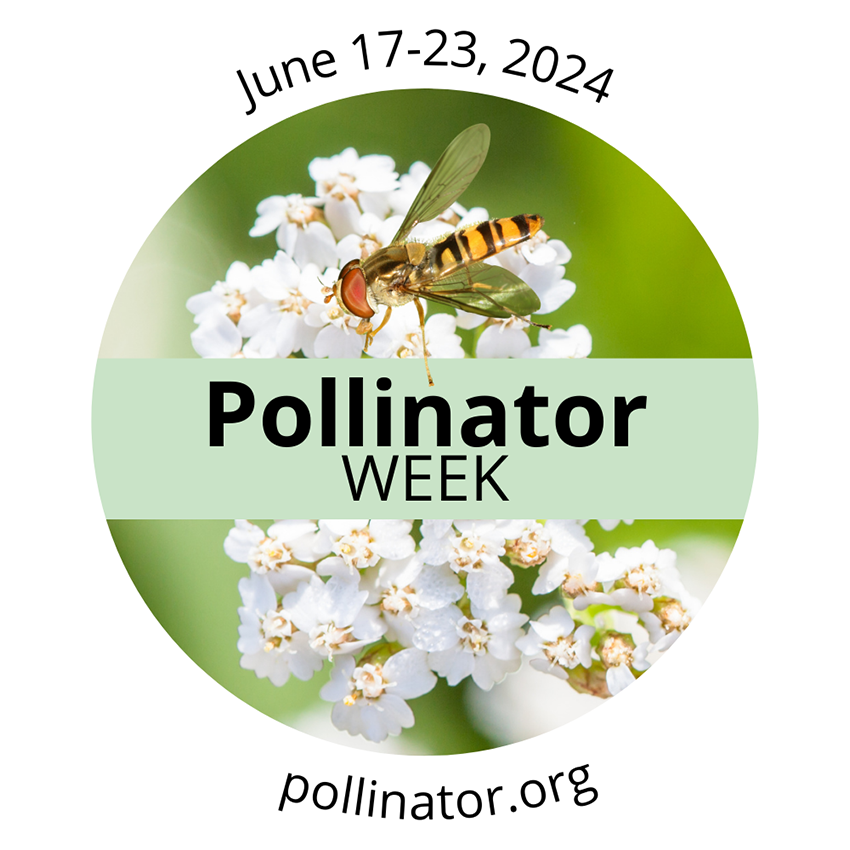The Branford Land Trust is celebrating National Pollinator Week from June 17-23!
A pollinator is any organism that helps transfer pollen between flowers, resulting in seed and fruit production! They can be butterflies, moths, flies, beetles, wasps, hummingbirds, bats, even small mammals in the tropics, but most pollinators are invertebrates like insects! About 85% of flowering plants rely on an animal to move their pollen. This relationship between plants and animals, primarily insects, is critical to providing us with the food we need to sustain our society, as well as other wildlife populations. However, pollinator populations are in decline across the world due to factors like habitat loss, pesticides, disease, and climate change. So, pollinators need our help, and there are things we can all do to make a difference! Below are a few ways to learn more and make a positive impact during National Pollinator Week.
Pollinator Power Party 2024
Participate in online Pollinator Power Party 2024. Offerings include workshops with conservation societies, municipalities, and business. Register for free.
Branford Polinator Garden
Bring a friend to discover Branford’s own town pollinator garden, right on the green:
Plant Native Species
Help feed pollinators by planting native species in your garden. Click here to see some native wildflower options.
Read About Pollinators
Here is a list of related books available from the Blackstone Memorial Library, or check out this e-book for young readers.
Learn More
Click here to learn about The Power of Pollinators, and then watch The Pollinators: Bees, Food Supply, Environment.
Build a bat house!
You can purchase a kit, or here is a link to instructions to build one from scratch from the National Wildlife Federation.
Imagine Your Day without Pollinators
About 75% of all food crops globally rely on animal pollinators. To grasp the full implication of what this means, try crafting a pollinator-less meal with your family. A quick hint: there would be no tea, coffee or honey and a very limited offering of fruits, vegetables, herbs and jam. Check out the cool infographics on Life without Bees and then read “Here’s What Our Dinner Plates Could Look Like Without Bees.”
Engage in Community Science
Community science is a form of research that provides everyone—regardless of their background—an opportunity to contribute meaningful data to further our scientific understanding of key issues. By engaging community members, researchers can collect a larger amount of data, and often span more geographic regions, in a shorter amount of time. In turn, data collected informs larger conservation efforts. It’s also a great opportunity for participants to learn more about species that interest them…like pollinators. Take a look!

